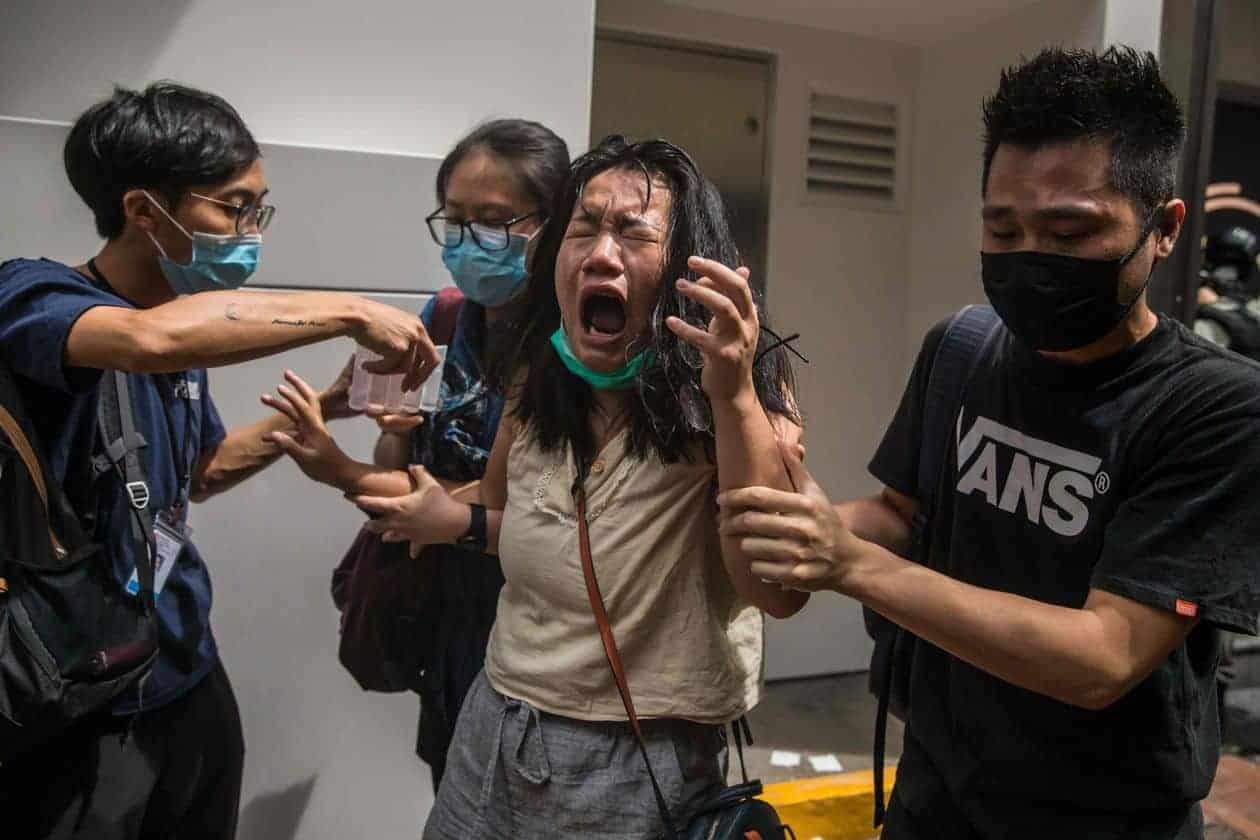Hong Kong Police Make First Security-Law Arrest as Thousands Protest
Wednesday, July 1, 2020

Police made their first arrest under China’s new national-security law for Hong Kong, apprehending a man for waving an independence flag, as thousands of protesters took to the streets to defy Beijing’s move to crush dissent in the city.
With an extensive show of force on Wednesday, officers in riot gear confronted demonstrators who gathered in Hong Kong’s main shopping district, making arrests, firing pepper spray and hoisting a purple banner warning protesters could be in violation of the new law. The man arrested for holding a Hong Kong independence flag was violating the new law, police said on Twitter.
The law, passed Tuesday morning by China’s legislature, imposes penalties of up to lifetime imprisonment for some crimes, including subverting state power, collusion with foreign forces and secessionist activities. The law also gives Beijing authorities broad new powers to operate in Hong Kong to enforce the law.
But the number of protesters swelled through the afternoon, paralyzing traffic in some areas as they filled roads in the biggest display of dissent in months. Police set up roadblocks in the city, including at a cross-harbor tunnel, to stop and search vehicles. They also closed off roads around the shopping district where protesters had gathered, and a water cannon truck fired on demonstrators in the area.
At least one demonstrator waved an American flag, a widely used protest symbol here, while others waved flags advocating Hong Kong independence. Among those arrested was Andrew Wan, a Democratic Party member of the city’s legislature, according to his assistant.
In a sign of how wide-reaching the new law may be, police in a statement said they noted some protesters chanting, “Hong Kong independence, the only way out.” They said such slogans are “suspected to be inciting or abetting others to commit secession” and may violate the new national security law.
The July 1 gatherings took place on the 23rd anniversary of Hong Kong’s handover to China from the U.K. Historically, civic groups have used the date to stage demonstrations in favor of reforms in Hong Kong. More than half a million demonstrators took to the streets on July 1 last year to protest a since-withdrawn bill that would have allowed the extradition of suspects from Hong Kong to China.
Police rejected an application by the city’s Civil Human Rights Front to hold the traditional July 1 protest this year, citing a ban on large gatherings due to coronavirus restrictions, as well as violence at past rallies. Activists then announced plans to defy the ban and march anyway.
Ordinary Hong Kong residents were swept up in the action as police formed cordons around the Causeway Bay shopping district.
“I’m very angry,” said Ricky Po, who was walking through the area with his daughter at the time, as police officers moved to stop activists taking down a banner that supported the new law nearby. “It removes human rights, I can’t have freedom of speech.”
Photo: A woman reacts after being hit with pepper spray deployed by police as they cleared protesters rallying against a new national-security law, Hong Kong, July 1. - PHOTO: DALE DE LA REY/AGENCE FRANCE-PRESSE/GETTY IMAGES











